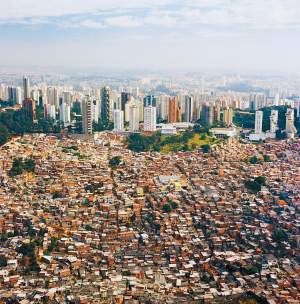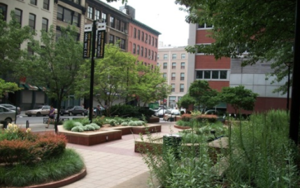 One of the great fears I have for this decade is that our cities are about to be Latinized.
One of the great fears I have for this decade is that our cities are about to be Latinized.
Blame the lack of gun control. Blame inequality. Blame whoever you like. Rich people, and the upper middle class, are scared to death, with good reason.
There’s also an historic opportunity opening the real estate market. The downsizing of office space looks permanent. Managers will complain, but it’s hard to see them foregoing the savings from renting less space. It’s hard to see knowledge workers forgoing the savings they get working from home. It’s not just the productivity. It’s being available 24-7, working until the job is done, rather than thinking of it from 9-5. It’s the clothes, the time wasted in driving to-and-from the job, the bad lunches. Uh, why?
What then happens to all that office space? It goes condo. It gets broken into apartments, with some co-working space and shops on the lower floors. I see a lot of security at the entrances. The steel construction, living above everyone, will make wealthy people feel safe. That’s Sao Paulo, skyscrapers and security surrounded by favelas, locks and armed guards, necessities for anyone with money.
 Cities are pushing for “workforce housing.” By this they mean four-story buildings, stick apartments and townhomes, 1,000 square feet and smaller, for those of moderate means. This turns vast swaths of cities into heat sinks. It’s not living closer to work if the job is in a suburban warehouse or restaurant. It’s only closer if the job is near an urban hospital or medical research facility. In that case chances are the job pays well enough to live in tall buildings close to the job site.
Cities are pushing for “workforce housing.” By this they mean four-story buildings, stick apartments and townhomes, 1,000 square feet and smaller, for those of moderate means. This turns vast swaths of cities into heat sinks. It’s not living closer to work if the job is in a suburban warehouse or restaurant. It’s only closer if the job is near an urban hospital or medical research facility. In that case chances are the job pays well enough to live in tall buildings close to the job site.
If density is demanded, density also has demands, or the middle class will flee. Density demands green space. It demands vest pocket parks, it demands space for trees, for ball fields, and for walking. Instead, I see city governments looking to force out homeowners by building out single-family lots wall-to-wall, the “garage apartments” rented, everyone a landlord. Do that and your former single-family neighborhoods become favelas.
Zoning laws should be rewritten. Just not in the way local government seems to think. Focus on mixed uses. Have stores, restaurants and co-working spaces, not just residential blocks. Include space for packages to be sorted and for returns to be sent out. Apartments need to be bigger, not smaller, because they’re also offices. Guarantee green space, walkable environments, safety for bicyclists with or without motors.
A few years ago, I thought our 2,000 square foot house was too big. Then my wife moved her office here and both kids bounced back home. Now we’re straining at the seams. We’re not alone. If the city doesn’t respond with a development model that assures an upper middle-class majority, however, inner cities will become urban hellholes again, and very rapidly.
Off-year elections usually include a lot of local races. They’re important this time. They’re vital. Make sure you’re heard. Don’t let American cities become Sao Paulo.









